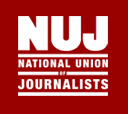
Here's the good news.
The company which represents everything that is wrong with globalisation has announced that it is closing 61 of its 84 stores in Australia.
It has also announced its first ever fall in quarterly profits.
Time to pop the champagne corks and light up the Montecristos?
Not quite. Starbuck's ultra-aggressive CEO, Howard Schultz has also announced that despite the growing evidence that the world has had enough of his wretched company, he still intends to open 150 new stores in airports and railway stations in Britain, Germany and France.
The sight of a Starbucks anywhere is depressing enough. But to see one in a French railway station? That would redefine the word 'tragic'. A Starbucks world is a sterile one, an ultra-boring, ultra-standardised globalised dystopia in which every town in every country in the world would look exactly the same.
Let's hope that Mr Schultz's aggressive expansion scheme backfires. And for that to happen all you have to do is what increasing numbers of people now seem to be doing- namely not set foot in one of his stores.




























